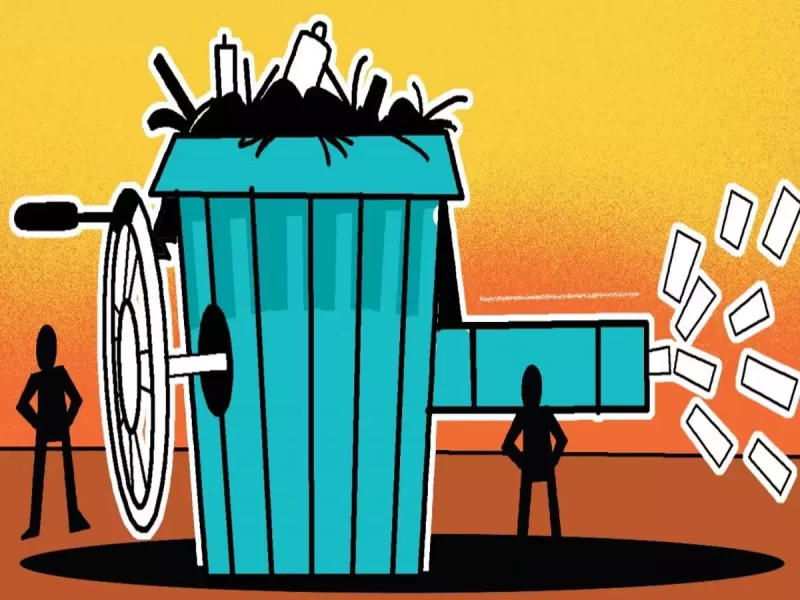

On December 23, 2019, four containers with approximately 100 tons of polypropylene waste, plastic bags used in agricultural work (PP Big Bags) arrived in Monrovia, Liberia from the port of Piraeus. However, according to documents from the Ministry of Environment and Energy, the above transfer was made in violation of EU law on waste transportation and now Greece, at its own cost,has made arrangements for its repatriation.
In February 2020, the Liberian authorities informed Greece that four containers had been seized in the port of Monrovia on the basis that their transportation took place illegally. The transport was made on the initiative of an individual from Greece, however, the national authorities are ultimately responsible for the implementation of the relevant legislation.
This illegal transport from Greece is part of a larger global waste management problem, where waste is often exported from developed countries to developing countries under questionable conditions for public health and environmental protection. Indeed, states manage a significant portion of their waste by exporting it via container ships from the developed world to poor countries. In the first nine months of 2020 alone, more than 1.7 billion kgs of waste were exported from the EU, the US, the United Kingdom and Japan to third countries. Greece is no exception, exporting waste worldwide, from Malaysia and the Philippines to Pakistan and Vietnam.
Governments often do not know if the waste that has been disposed of will eventually be recycled and reintegrated into the circular economy. This is waste that can be toxic and threaten not only the environment and biodiversity, but also the health of populations in host countries as well as in developed countries, where “recycled” plastics are often returned to . A scientific study published in Environment International has identified 126 chemicals in plastic toys that pose a risk to children’s health, some of which have resulted from the recycling of contaminated plastics.
As an EU Member State, Greece has a firm obligation to implement EU law, which aims to establish common rules of law throughout the Union and to protect the rights and public goods enjoyed by European citizens.
However, in this case Greece has violated its obligations under Regulation (EC) no. 1013/20 and Regulation (EC) no. Regulation (EC) No 1418/2007 (as amended by Regulation (EC) No 733/2014).
This illegal export of waste to Liberia was in violation of the rule of law, which requires Member States to respect and enforce EU law, which in this case aims at the management and transport of waste in a manner that is safe for the environment and public health.
Bank Account number: 1100 0232 0016 560
IBAN: GR56 0140 1100 1100 0232 0016 560
BIC: CRBAGRAA
![]()
In a time where the very foundations of democracy are gradually being eroded by the rise of extreme nationalism, alt-right movements, the spread of disinformation and corporate capture, the efforts of organisations such as Vouliwatch are more relevant than ever.
We rely on the generosity of each and every one of you to continue with our efforts for more transparency and accounta
By financially supporting Vouliwatch you support our litigation strategy, our campaigns for transparency and accountability in the political system, the development of new civic tech tools, our research projects and last but not least our impartial and accurate